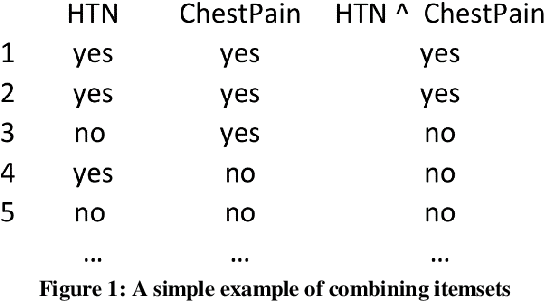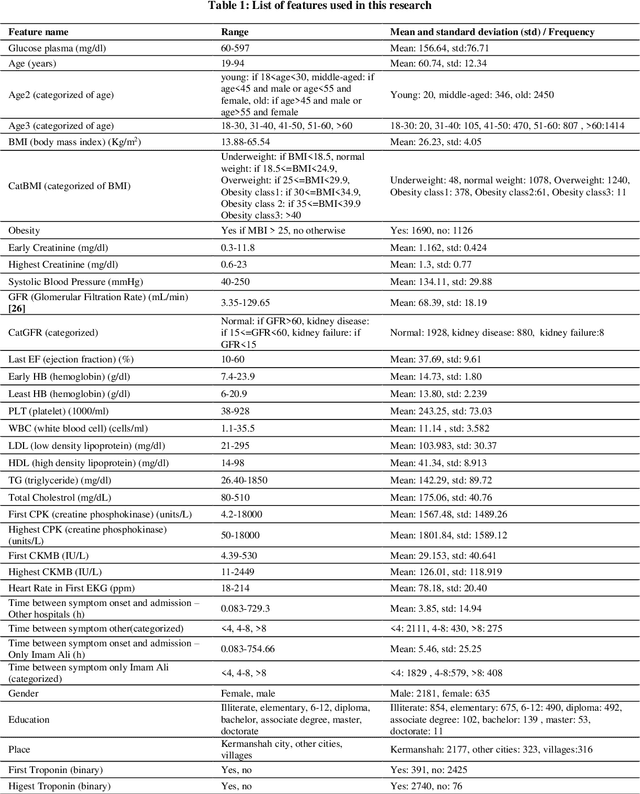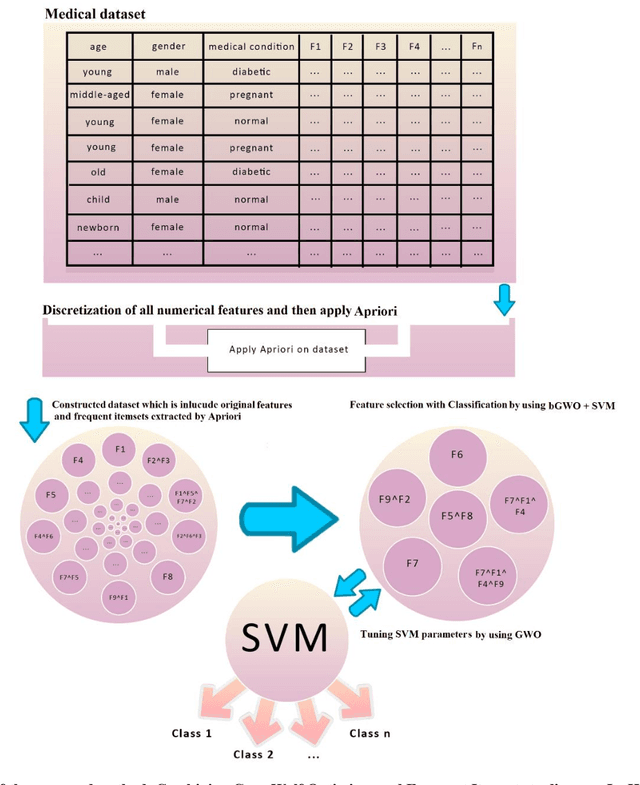GWO-FI: A novel machine learning framework by combining Gray Wolf Optimizer and Frequent Itemsets to diagnose and investigate effective factors on In-Hospital Mortality and Length of Stay among Kermanshahian Cardiovascular Disease patients
Paper and Code
Dec 26, 2022



Investigation and analysis of patient outcomes, including in-hospital mortality and length of stay, are crucial for assisting clinicians in determining a patient's result at the outset of their hospitalization and for assisting hospitals in allocating their resources. This paper proposes an approach based on combining the well-known gray wolf algorithm with frequent items extracted by association rule mining algorithms. First, original features are combined with the discriminative extracted frequent items. The best subset of these features is then chosen, and the parameters of the used classification algorithms are also adjusted, using the gray wolf algorithm. This framework was evaluated using a real dataset made up of 2816 patients from the Imam Ali Kermanshah Hospital in Iran. The study's findings indicate that low Ejection Fraction, old age, high CPK values, and high Creatinine levels are the main contributors to patients' mortality. Several significant and interesting rules related to mortality in hospitals and length of stay have also been extracted and presented. Additionally, the accuracy, sensitivity, specificity, and auroc of the proposed framework for the diagnosis of mortality in the hospital using the SVM classifier were 0.9961, 0.9477, 0.9992, and 0.9734, respectively. According to the framework's findings, adding frequent items as features considerably improves classification accuracy.
 Add to Chrome
Add to Chrome Add to Firefox
Add to Firefox Add to Edge
Add to Edge